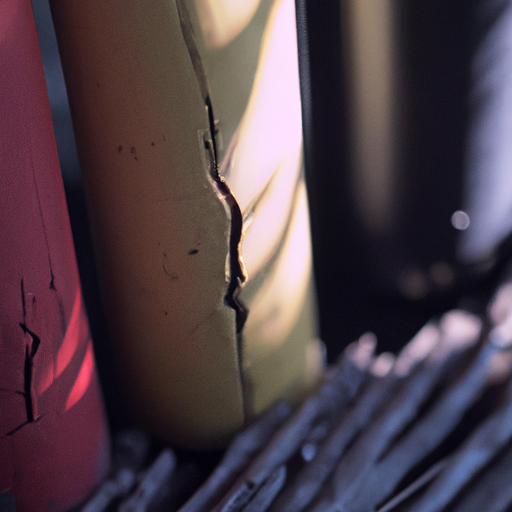
The Benefits of Transitioning to Exclusively Estate-Grown Wines
Three Sticks, a renowned winery located in Sonoma Valley, has recently made the decision to transition to exclusively estate-grown wines. This move has generated a lot of buzz in the wine industry, as it represents a significant shift in the winery’s production practices. In this article, we will explore the benefits of transitioning to exclusively estate-grown wines and why Three Sticks has chosen to make this change.
One of the primary benefits of producing exclusively estate-grown wines is the ability to have complete control over the entire winemaking process. By growing their own grapes on their own land, wineries can ensure that the grapes are of the highest quality and are harvested at the optimal time. This level of control allows for greater consistency in the final product, resulting in wines that truly reflect the unique characteristics of the vineyard.
In addition to quality control, transitioning to exclusively estate-grown wines also allows wineries to showcase the terroir of their vineyard. Terroir refers to the combination of soil, climate, and other environmental factors that influence the flavor and aroma of the grapes. By exclusively using grapes from their own vineyard, wineries can highlight the distinct terroir of their land, creating wines that are truly unique and reflective of their specific location.
Another advantage of transitioning to exclusively estate-grown wines is the ability to build a stronger brand identity. By focusing on wines that are produced solely from their own vineyard, wineries can establish themselves as experts in their specific terroir. This specialization can help differentiate them from other wineries and attract a loyal customer base who appreciates the unique qualities of their wines.
Furthermore, producing exclusively estate-grown wines can also have environmental benefits. By growing grapes on their own land, wineries can implement sustainable farming practices that minimize the use of pesticides and other harmful chemicals. This not only helps protect the environment but also ensures that the grapes are grown in a way that is respectful of the land and its natural resources.
So why has Three Sticks decided to make the transition to exclusively estate-grown wines? According to Bill Price, the owner of Three Sticks, the decision was driven by a desire to showcase the unique qualities of their vineyards and to create wines that truly reflect the terroir of Sonoma Valley. By focusing on estate-grown wines, Three Sticks aims to establish themselves as a premier producer of high-quality, terroir-driven wines.
The transition to exclusively estate-grown wines is not without its challenges. It requires significant investment in vineyard land and infrastructure, as well as a long-term commitment to sustainable farming practices. However, the benefits far outweigh the costs for wineries like Three Sticks, who see this transition as an opportunity to elevate their brand and produce wines of exceptional quality.
In conclusion, transitioning to exclusively estate-grown wines offers numerous benefits for wineries. From quality control and showcasing terroir to building a strong brand identity and implementing sustainable farming practices, the advantages are clear. Three Sticks’ decision to make this transition reflects their commitment to producing wines that are truly representative of their vineyards and the unique characteristics of Sonoma Valley. As the wine industry continues to evolve, it will be interesting to see how other wineries follow suit and embrace the exclusive use of estate-grown grapes.
Exploring the Journey of Three Sticks towards Estate-Grown Wines

Three Sticks, a renowned winery located in Sonoma Valley, has recently made a significant transition in its winemaking process. After years of sourcing grapes from various vineyards, Three Sticks has decided to focus exclusively on estate-grown wines. This decision marks a new chapter in the winery’s journey, as it seeks to showcase the unique terroir of its own vineyards.
The journey towards estate-grown wines began several years ago when Three Sticks acquired its first vineyard, Durell Vineyard. Recognizing the potential of this exceptional site, the winery decided to take a more hands-on approach to winemaking. By cultivating their own grapes, Three Sticks aimed to have complete control over the quality and expression of their wines.
The success of Durell Vineyard encouraged Three Sticks to expand its estate holdings. Over the years, the winery acquired several other vineyards, including Gap’s Crown Vineyard and Walala Vineyard. Each of these sites offers a distinct microclimate and soil composition, contributing to the diversity of flavors and aromas found in Three Sticks’ wines.
Transitioning to exclusively estate-grown wines was not a decision taken lightly by Three Sticks. It required careful consideration and a deep understanding of the vineyards’ potential. The winery’s team of viticulturists and winemakers spent countless hours studying the unique characteristics of each vineyard, determining which grape varieties would thrive in each location.
One of the key advantages of estate-grown wines is the ability to showcase the true expression of the terroir. By controlling every aspect of the winemaking process, from vineyard management to bottling, Three Sticks can ensure that their wines reflect the unique characteristics of each vineyard. This level of control allows for greater consistency and a deeper connection between the land and the final product.
Another benefit of estate-grown wines is the ability to experiment and innovate. With a diverse portfolio of vineyards, Three Sticks can explore different winemaking techniques and grape varieties. This freedom to push boundaries and challenge conventions is what sets estate-grown wines apart from their counterparts.
The transition to exclusively estate-grown wines also aligns with Three Sticks’ commitment to sustainability. By focusing on their own vineyards, the winery can implement environmentally friendly practices, such as organic farming and water conservation. This dedication to sustainability not only benefits the environment but also contributes to the overall quality of the wines.
As Three Sticks embarks on this new chapter, the winery remains dedicated to producing exceptional wines that reflect the unique character of Sonoma Valley. The transition to exclusively estate-grown wines is a testament to their passion for winemaking and their desire to showcase the best that their vineyards have to offer.
In conclusion, Three Sticks’ journey towards estate-grown wines is a significant milestone in the winery’s history. By focusing on their own vineyards, Three Sticks can fully express the terroir of each site and create wines that are truly unique. This transition not only allows for greater control and consistency but also aligns with the winery’s commitment to sustainability. As Three Sticks continues to explore and innovate, wine enthusiasts can look forward to experiencing the exceptional quality and diversity of their estate-grown wines.
How Three Sticks’ Transition to Estate-Grown Wines Impacts the Wine Industry
Three Sticks, a renowned winery located in Sonoma, California, has recently made a significant transition in its winemaking process. The winery has decided to exclusively produce estate-grown wines, a move that is expected to have a profound impact on the wine industry as a whole.
Estate-grown wines are wines that are made from grapes grown on the winery’s own vineyards. This means that the winery has complete control over the entire winemaking process, from the cultivation of the grapes to the bottling of the final product. By focusing solely on estate-grown wines, Three Sticks aims to showcase the unique characteristics of its vineyards and create wines that truly reflect the terroir of the region.
One of the main impacts of Three Sticks’ transition to estate-grown wines is the increased emphasis on quality. By growing their own grapes, the winery can carefully select the best vineyard sites and implement sustainable farming practices to ensure the highest quality fruit. This level of control allows Three Sticks to produce wines that are consistently excellent, with a distinct sense of place. This commitment to quality is likely to set a new standard for wineries across the industry, encouraging others to follow suit and prioritize the production of estate-grown wines.
Furthermore, Three Sticks’ decision to exclusively produce estate-grown wines also has implications for the environment. By growing their own grapes, the winery reduces the need for transportation, as the grapes do not have to be sourced from other vineyards. This not only reduces carbon emissions but also minimizes the risk of contamination or damage to the grapes during transportation. Additionally, by implementing sustainable farming practices, Three Sticks can minimize the use of pesticides and other harmful chemicals, further reducing their environmental impact. This commitment to sustainability is likely to resonate with consumers who are increasingly conscious of the environmental footprint of the products they consume.
In addition to the environmental benefits, Three Sticks’ transition to estate-grown wines also has economic implications. By focusing on the production of high-quality wines, the winery is likely to attract a niche market of wine enthusiasts who are willing to pay a premium for exceptional wines. This shift towards producing premium estate-grown wines can potentially increase the winery’s profitability and contribute to the overall growth of the wine industry. Moreover, by setting a new standard for quality, Three Sticks’ transition may inspire other wineries to invest in their own vineyards and prioritize the production of estate-grown wines, further driving the growth of the industry.
Overall, Three Sticks’ decision to exclusively produce estate-grown wines is a significant development in the wine industry. This transition not only emphasizes the importance of quality and sustainability but also sets a new standard for wineries across the industry. By showcasing the unique characteristics of their vineyards and prioritizing the production of exceptional wines, Three Sticks is likely to have a lasting impact on the wine industry, inspiring others to follow suit and further elevate the quality of wines produced worldwide.






